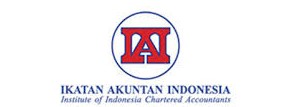Pengaruh Otonomi Keuangan, Akumulasi Surplus dan Sisa Lebih Perhitungan Anggaran (SiLPA) terhadap Perubahan Anggaran Belanja Bantuan Sosial
Abstract
This research aimed to determine the examine the effect of financial autonomy, accumulated surpluses, budget calculation excess on social assistance budget. The population in this research are all Regency/City in Sumatera in 2017-2020. The sampling technique used the purposive sampling. Total sampel are 51 districts with 4 period years. The statistical method used panel data regression analysis. The result showed that financial autonomy, accumulated surpluses, budget calculation excess had a positive effect on social assistance budget.
References
Abadiarti. (2014). Pengaruh Tingkat Inkremental Penganggaran Awal, Kondisi Keuangan Pemerintah Daerah Dan Sosioekonomi Lokal Terhadap Rebudgeting Pada Pemerintah Daerah Di Indonesia (Studi Informasi Website Pemerintah Daerah). Tesis, Universitas Sebelas Maret, Surakarta.
Abdullah, S., & Nazry. (2015). Analisis Varian Anggaran Pemerintah Daerah Penjelasan Empiris dari Perspektif Keagenan. 6(2), 272–283.
Abdullah, S., & Rona, R. (2014a). Pengaruh Sisa Anggaran, Pendapatan Dan Dana Perimbangan Terhadap Belanja Modal. Journal of Iqtishadia, 7(1), 179–202.
Afrah, J., Abubakar, E., & Abdullah, S. (2018). The Effect of Budget Variances on the Local Government Budget Changes with Legislature Size as Moderator. 4(1), 162–173.
Anessi-Pessina, E., Sicilia, M., & Steccolini, I. (2012). Budgeting and Rebudgeting in Local Governments: Siamese twins? Public Administration Review, 72(6), 875–884. https://doi.org/10.1111/j.1540-6210.2012.02590.x
Anthony, R., & Govindarajan, V. (2005). Sistem Pengendalian Manajemen. Salemba Empat.
Bratakusumah, Deddy Supriyadi, dan Dadang Solihin. (2004). Otonomi Penyelenggaraan Pemerintahan Daerah. Jakarta: Gramedia Pustaka Utama.
Ghozali, I. (2013). Aplikasi Analisis Multivariate dengan Program SPSS (4 (ed.)). Universitas Diponegoro.
Gudono. (2017). Teori Organisasi. Edisi 4. Andi, Yogyakarta.
Hyde, A.C. (1992). Government Budgeting : Theory, Process, and Politics.
Jensen, M., C., dan W. Meckling, (1976). “Theory of the firm: Managerial behavior, agency cost and ownership structure”, Journal of Finance Economic 3:305- 360, di-download dari http://www.nhh.no/for/courses/spring/eco420/jensen- meckling-76.pdf.
Junita, A., & Abdullah, S. (2016). PENGARUH FISCAL STRESS DAN LEGISLATURE SIZE TERHADAP EXPENDITURE CHANGE PADA KABUPATEN / KOTA. XX(03), 477– 478.
Lu, H dan R. L. Facer. (2004). Budget Change in Georgia Counties: Examining Patterns and Practise. American Review of Public Administration, 34(1), 67-93.
Purwanto, A. (2016a). Jurnal Akuntansi dan Bisnis. 16(2), 87–96.
Purwanto, A. (2016b). PENGARUH KONDISI KEUANGAN DAN POLITIK TERHADAP PERUBAHAN ANGGARAN PADA PEMERINTAH DAERAH DI INDONESIA. Jurnal Akuntansi Dan Bisnis, 16(2), 87–96.
Sekaran, Uma. (2003). Research Method for Business A Skill – Building Approach, 4th Edition. Salemba Empat. Jakarta.
Sugiyono. (2008). Metode Penelitian Kuantitatif Kualitatif dan R&D. Bandung : ALFABETA.
Zimmerman, J. L. (1977). The Municipal Accounting Maze: An Analysisof Political Incentives. Journal ofAccounting Research.







.png)
.png)
